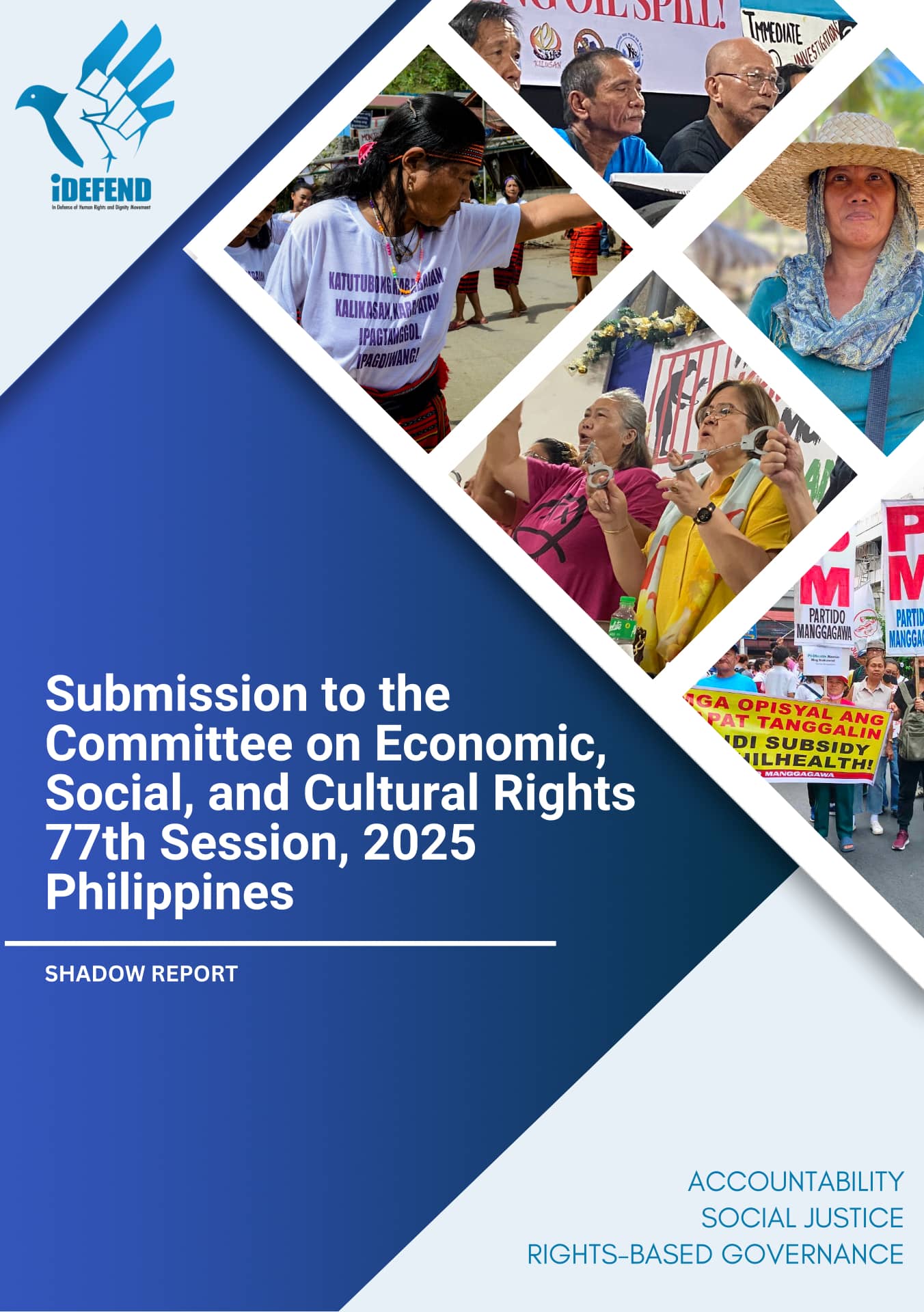In Defense of Human Rights and Dignity Movement (iDEFEND), a coalition of over 66 grassroots organizations and advocates from across the Philippines and abroad, welcomes the opportunity to contribute to the Committee on Economic, Social, and Cultural Rights (the Committee) as it reviews the Philippines’ Seventh Periodic Report under the International Covenant on Economic, Social and Cultural Rights (ICESCR).
This submission draws upon the inputs from grassroots organizations advocating for the realization of economic, social, and cultural rights, with a particular focus on marginalized populations. It critically analyzes the Philippine government’s performance in fulfilling its ICESCR obligations, including adherence to core principles such as ensuring Minimum Essential Levels of rights, preventing retrogressive measures, and addressing discrimination. The State’s obligation to prioritize those at greatest risk remains paramount, even in the context of resource constraints.
The review takes place amidst significant political shifts following the election of Ferdinand Marcos Jr. in 2022, succeeding the administration of Rodrigo Duterte, under which the OHCHR reported “widespread and systematic human rights violations,” particularly in the anti-drug campaign.
Persistent challenges include the exploitation of indigenous peoples and farmers, as laws protecting land rights and agrarian reform are undermined by influential political and corporate actors. Despite its significant mandate, the National Commission on Indigenous Peoples continues to face concerns about its independence and effectiveness.
We do recognize some positive developments under the current administration, including constructive engagement in the Universal Periodic Review (UPR) process and the release of former Senator Leila de Lima. However, as noted by UN Special Rapporteur on Freedom of Opinion and Expression, Irene Khan, following her visit to the Philippines in February 2024, “fundamental reforms and accountability” are indispensable to addressing the “grave and deep-seated human rights problems” in the country.
Regrettably, the Marcos administration has perpetuated the war on drugs, a policy previously linked to widespread extrajudicial killings. As of December 2024, 363 drug-related killings were documented, including 112 attributed to state agents. According to the Dahas Project, victims include individuals with no known drug ties, such as a police officer and the brother of a suspected drug pusher. This continued violence underscores the absence of meaningful reforms in the government’s anti-drug policy framework.
Economic policies under the Marcos administration further reflect a corporate-oriented approach. The establishment of a Private Sector Advisory Council, composed predominantly of CEOs, tasked with shaping policies in sectors critical to economic, social, and cultural rights—such as energy, housing, agriculture, and healthcare—raises concerns about the potential marginalization of vulnerable communities in decision-making processes.
We urge the Committee to consider these developments and recommend the adoption of decisive measures to uphold human rights in the Philippines. These should include concrete steps to address ongoing human rights violations, ensure accountability for past abuses, and align economic policies with the principles of equity and social justice as enshrined in the ICESCR.






